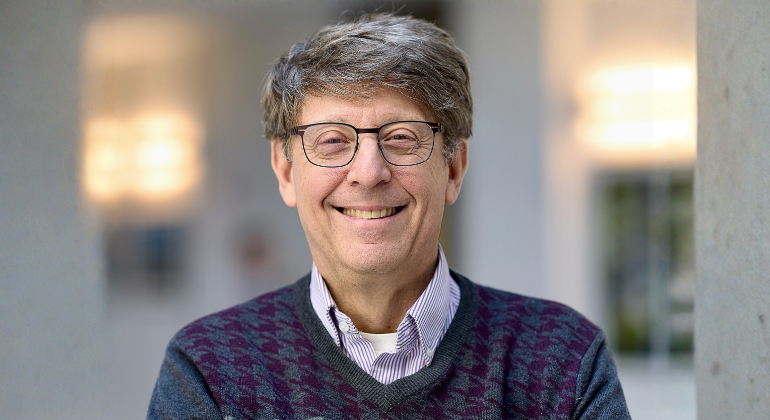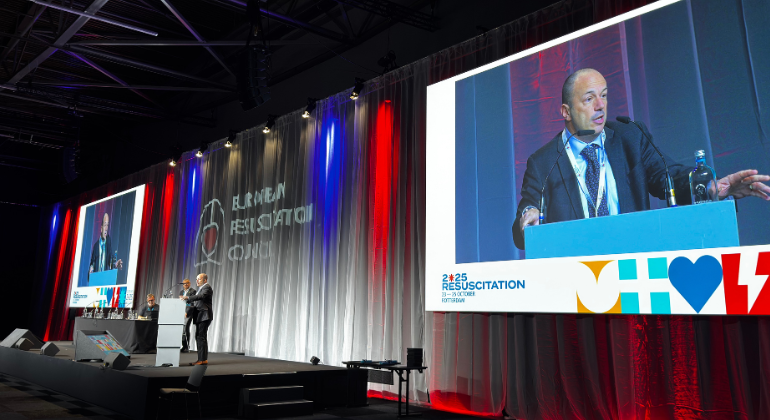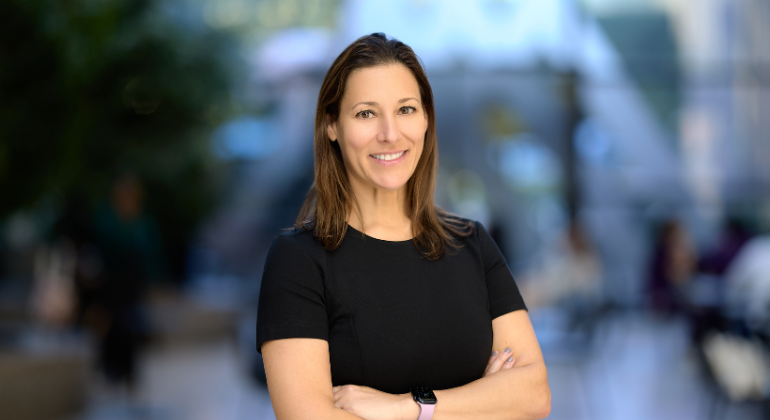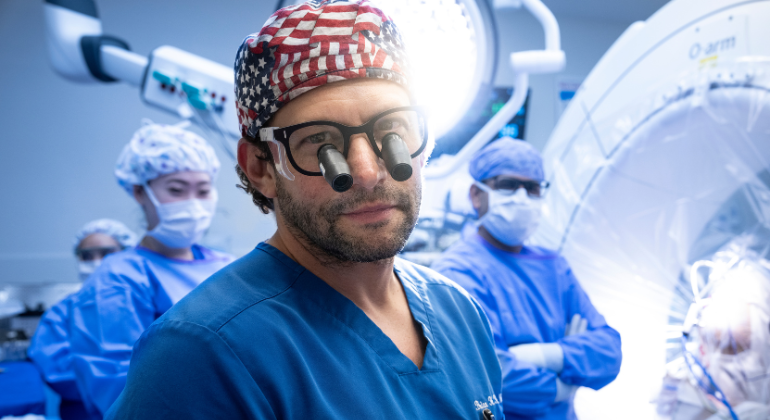Experts from The Mount Sinai Hospital Debunk The Most Common Myths About HIV-AIDS Among the New York City Community
In an effort to educate the community, lower the statistics and raise awareness about prevention and early detection, specialists from The Mount Sinai Hospital debunk myths or false beliefs about HIV/AIDS.
December 1 was World AIDS Day and New York City remains the epicenter of HIV/AIDS in the U.S. More than 107,000 New Yorkers are living with HIV, but thousands more don't know that they're infected. New York City's AIDS case rate is almost 3 times the U.S. average, and HIV is the 3rd leading cause of death for New York City residents aged 35 to 54. In an effort to educate the community, lower the statistics and raise awareness about prevention and early detection, specialists from The Mount Sinai Hospital debunk myths or false beliefs about HIV/AIDS.
Myth # 1 – "Being HIV positive is a death sentence."
False - Although infection with HIV is serious, people with HIV and AIDS are living longer, healthier and full lives today, thanks to new and effective treatments. Dr. Oscar Klein of the Comprehensive Health Program-Downtown explained, "It is important for people to understand that HIV is the virus that causes the disease AIDS. Although HIV causes AIDS, a person can be infected with HIV for many years before AIDS develops." Before the development of medications against HIV/AIDS, people with HIV could progress to AIDS in just a few years. Dr. Klein recommended, "Regardless of whether the patient is known or suspected to have specific behavioral risks for HIV infection, early diagnosis of HIV infection is essential to ensuring that patients are referred promptly for evaluation, provided treatment, and linked into counseling and related support services to help them live healthier lives and reduce the risk of transmission to others."
Myth # 2 – "I don’t have any symptoms, so I don’t have HIV."
False - People living with HIV may appear and feel healthy for several years. However, even if they feel healthy, HIV is still affecting their bodies. Dr. Barbara Johnston of the Mount Sinai Comprehensive Health Program- Downtown recommends, "All people should get tested and patients with HIV should be seen on a regular basis by a health care provider experienced with treating HIV infection. Many people with HIV, including those who feel healthy, can benefit greatly from current medications used to treat HIV infection." Dr. Johnston added, "These medications can limit or slow down the destruction of the immune system, improve the health of people living with HIV, and may reduce their ability to transmit HIV. Untreated early HIV infection is also associated with many diseases, including cardiovascular disease, kidney disease, liver disease, and cancer. Support services are also available to many people with HIV."These services can help people cope with their diagnosis, reduce risk behavior, and find needed services.
Myth # 3 – "The more I am around HIV positive people, the greater my risks."
False. You are not at risk of being infected with HIV just because you work, shake hands or are around someone who has HIV. You cannot get infected by saliva, tears, or sweat; or by doing everyday things like sharing a meal or sitting on toilet seats. Neither is it true that you are at risk by being stung or bitten by an insect that has bitten an HIV positive individual. Dr. Gabriela Rodriguez-Caprio of the Jack Martin Clinic states that "a person is at risk if he or she is having sex without a condom with someone who has HIV; sharing a needle to inject drugs with someone who has HIV; or receiving a blood transfusion from an HIV positive individual."Also, it is important to take into consideration that unprotected anal sex is riskier than unprotected vaginal sex and having multiple sex partners or the presence of other sexually transmitted diseases (STDs) can increase the risk of infection during sex.
Myth # 4 – "With all the advancements and new treatment alternatives, being HIV positive isn’t a big deal anymore."
False. No one should become complacent about HIV and AIDS. While current medications can dramatically improve the health of people living with HIV and ideally eliminate the progress to AIDS, existing treatments need to be taken daily for the rest of a person’s life, need to be carefully monitored, and come with costs and potential side effects. At this time, there is no cure for HIV infection. Matthew Baney, AIDS Center Administrative Director recommended, "the surest way to avoid transmission of HIV and STD is to abstain from sexual intercourse, or to be in a long term mutually monogamous relationship with a partner who you know is uninfected. Consistent and proper use of condoms can greatly reduce the risk of HIV transmission. Post and pre-exposure treatments can be discussed with experienced physicians. Also, don’t share any elements used to inject drugs, or for tattooing or body piercing. If you are pregnant, talk to a doctor about being tested for HIV. If you have HIV, drug treatments are available to help you and they can reduce the chance of passing HIV to your baby."
If you think that you may be at risk or, if you need help determining whether you, a family member or friend has the disease, contact your doctor immediately. Both the Jack Martin Clinic (212-241-7986) and the Mount Sinai Comprehensive Health Program Downtown (212-604-1701) provide free confidential HIV Testing for at risk persons. Our Downtown program also offers STD screening and treatment. For more information, please call to 212-604-1701. For an appointment with a specialist contact: 1-877-241-4983.
About Jack Martin Fund Clinic and Mount Sinai Comprehensive Health Program-Downtown
For more than 20 years, Mount Sinai Hospital, a NYSDOH/AIDS Institute Designated AIDS Center, has provided comprehensive inpatient/outpatient primary medical and nursing care, case management services, nutrition counseling, health professional education/training and access to clinical trials. Serving New York City areas hit hardest by the HIV/AIDS epidemic, Mount Sinai offers two convenient sites for patients: Jack Martin Fund Clinic in East Harlem and Comprehensive Health Program-Downtown (MSCHP-Downtown) in Chelsea. Both programs are recognized as Primary Care Medical Homes (PCMH) by the National Quality Center based on the quality and complexity of the services provided to our targeted population.
The Jack Martin Fund Clinic is housed in the beautiful state-of-the-art Center for Advanced Medicine (CAM) in East Harlem. This welcoming and supportive facility offers primary inpatient/outpatient treatment for adults and children with infectious diseases, as well as specialty and sub-specialty care, weekly support groups and ongoing psychotherapy groups. The Jack Martin Fund Clinic is located at 17 East 102nd Street.
The MSCHP-Downtown, formerly a St. Vincent’s Hospital entity, is dedicated to the compassionate care of HIV+ patients in the community. The MSCHP-Downtown has grown and flourished at its new location at 275 7th Avenue in Chelsea, with an average of 30 new patients enrolled for services each month.
For more information, visit http://www.mountsinai.org
Find Mount Sinai on:
Facebook: http://www.facebook.com/mountsinainyc
Twitter @mountsinainyc
YouTube: http://www.youtube.com/mountsinainy
About the Mount Sinai Health System
Mount Sinai Health System is one of the largest academic medical systems in the New York metro area, with 48,000 employees working across seven hospitals, more than 400 outpatient practices, more than 600 research and clinical labs, a school of nursing, and a leading school of medicine and graduate education. Mount Sinai advances health for all people, everywhere, by taking on the most complex health care challenges of our time—discovering and applying new scientific learning and knowledge; developing safer, more effective treatments; educating the next generation of medical leaders and innovators; and supporting local communities by delivering high-quality care to all who need it.
Through the integration of its hospitals, labs, and schools, Mount Sinai offers comprehensive health care solutions from birth through geriatrics, leveraging innovative approaches such as artificial intelligence and informatics while keeping patients’ medical and emotional needs at the center of all treatment. The Health System includes approximately 9,000 primary and specialty care physicians and 10 free-standing joint-venture centers throughout the five boroughs of New York City, Westchester, Long Island, and Florida. Hospitals within the System are consistently ranked by Newsweek’s® “The World’s Best Smart Hospitals, Best in State Hospitals, World Best Hospitals and Best Specialty Hospitals” and by U.S. News & World Report's® “Best Hospitals” and “Best Children’s Hospitals.” The Mount Sinai Hospital is on the U.S. News & World Report® “Best Hospitals” Honor Roll for 2025-2026.
For more information, visit https://www.mountsinai.org or find Mount Sinai on Facebook, Instagram, LinkedIn, X, and YouTube.

NIH Awards $10 Million for the New York Regional Diabetes Research Center
Oct 23, 2025 View All Press Releases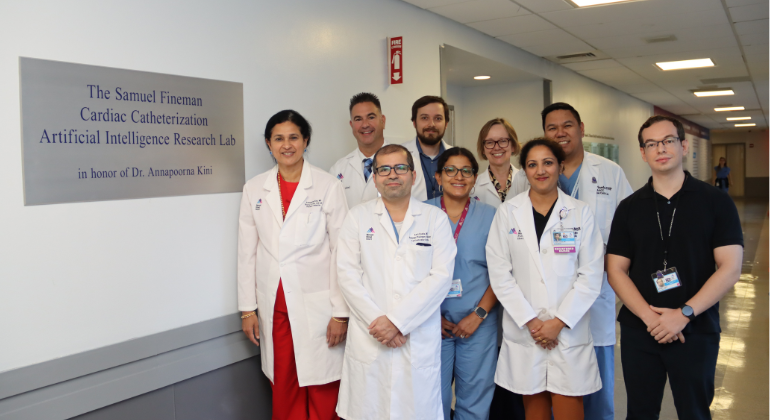
Mount Sinai Launches Cardiac Catheterization Artificial Intelligence Research Lab
Sep 15, 2025 View All Press Releases